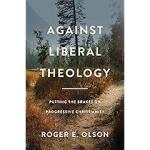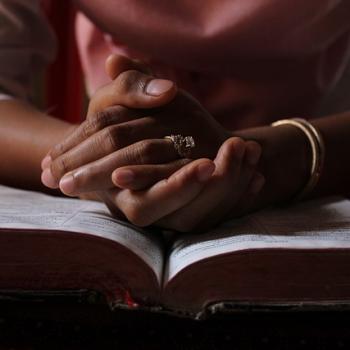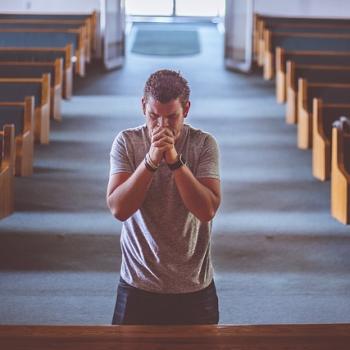So I think the way I’d want to address them would have to be biblical. Jesus says in Matthew 7 and Luke 6 that we judge a tree by its fruits: no bad tree can give good fruits, and vice versa. I can tell you that in four years of talking about the Potter novels, I’ve never once seen a credible account of someone led to practicing witchcraft by reading the Potter books or seeing the Potter films. But I have seen many people -- children and adults alike -- who have learned the value of compassion, the importance of faithful community, and the necessity of living out self-sacrificing love through their encounters with these stories. The fruit of J.K. Rowling’s stories and her own claiming of Christianity have the potential to shape millions of lives in faithful love and service. That looks like good fruits for me.
You mention that Rowling was afraid that if she allowed the public to know of her faith, they could guess how the story would end. Do you believe that this is a problem for authors of faith? How does your faith influence your writing? Do you empathize with Rowling’s concerns?
Big questions, and they come to the heart of faithful art. Rowling’s concern, simply, was that those who knew she was a Christian would be able to discern whether or not Harry Potter would live, die, or do both. This awareness of resurrection faith is probably more important to Rowling’s particular narrative than to most narratives by Christian authors, but it’s probably there, since what we ultimately believe in, as J.R.R. Tolkien and contemporary theologians like Jürgen Moltmann and John Polkinghorne point out, is happy endings.
As a writer, you want people to believe that disaster and sorrow are possible outcomes of your story; I think if you write well, even as a person of faith, readers will have the shock of surprise when they reach a happy ending. And, if you are a person faithful both to God and to observation, it’s possible that you’ll write something that doesn’t end happily in the moment, because sometimes people die, sometimes hearts break, sometimes the Holocaust happens. So your novel or story can end unhappily, even as we believe and hope for something different.
At the end of Deathly Hallows, Harry offers Voldemort a chance to repent. In today’s world, filled with real-life terrorists, world leaders, and power mongers, is this an option? You write of the importance of compassion and redemption -- but are these possibilities in the higher spheres of power, in government and the justice system?
As a person of faith, yes, I believe there is always the possibility of repentance and redemption, although Rowling’s story points out how difficult it may be. Voldemort is set in his ways -- calcified, petrified -- and the possibility that he will allow his heart and mind to change is slight. But I do and must believe in the possibility that God’s love moving in the world can still move mountains and change minds. How we play this out in institutions is probably different from how we believe as individuals. As Reinhold Niebuhr argued, “Christian realism” insists we recognize that, for example, all our prayers for Hitler to change may not stop him from attacking Poland or killing Jews. Perhaps justice demands we take up arms to oppose great evil; I myself am unsure. I want to be a Christian pacifist and place my complete faith in the God of Abraham -- what Reinhold Niebuhr’s brother Richard called “Radical Monotheism” -- but honestly, most days I’m too weak to do that. I could never do what Harry ultimately does in Rowling’s epic -- go to his death without taking up arms, trusting that there is a greater plan, a deeper magic.
In One Fine Potion, you mention J.R.R. Tolkien’s idea of the eucatastrophe, the story that offers the audacious ending of hope amidst disaster. For many people today, a story that ends with “all was well” seems contrived and, well, cheesy. Why is this? Why does the good ending feel so artificial sometimes? And why is the Harry Potter saga an exception?
We have been conditioned by bad Hollywood films that did not earn their happy endings to think of them as somehow unrealistic. I know as a novelist that we have to earn our endings, and they have to have been prepared for. A good writer does the groundwork for possibility, and plants hope. Theologically speaking, though, the eucatastrophe is at the heart of our faith: no matter how bad things look, we believe the God is working to redeem the cosmos, and eventually that plan is going to show its face. In Harry Potter, what makes Rowling’s accomplishment so brilliant is that she has planted so many little seeds of hope, has done her work so well, that we are willing to believe -- and rooting for light to somehow overcome darkness. In the book, I think I managed to talk rationally about the beauty of her ending, but I find now, thinking about it, all I can do is gush. What an accomplishment, both in literary and theological terms!




